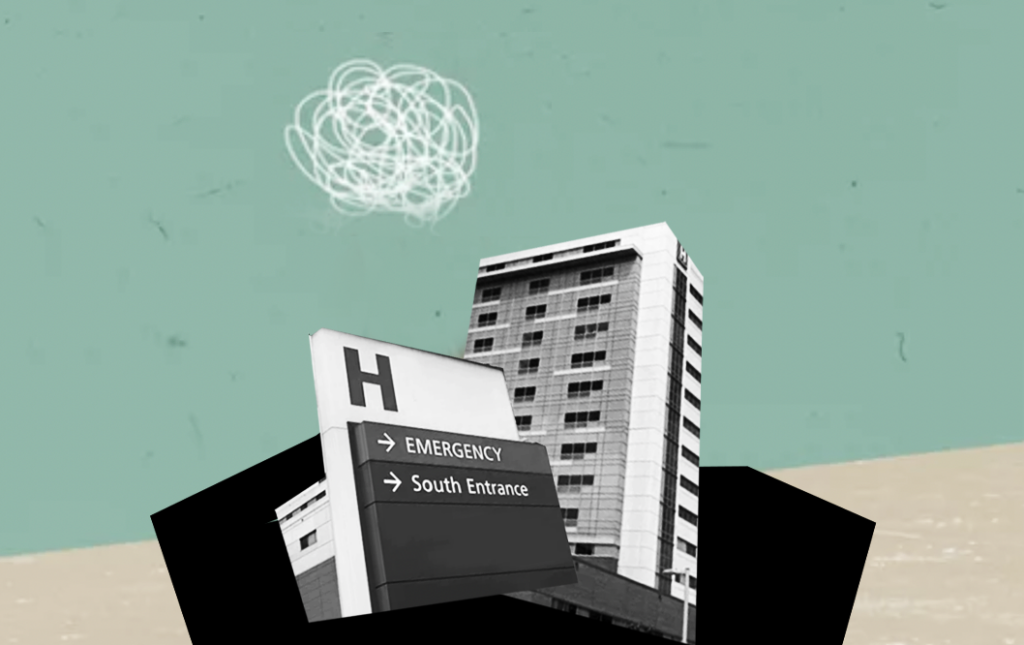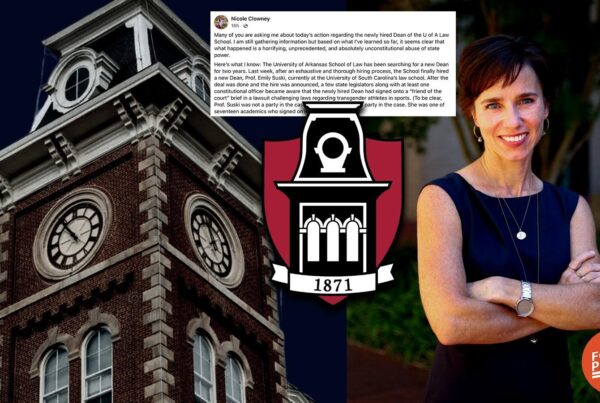Lawmakers must do three things to stop the bleeding and pave the way for a healthier Arkansas.
Last month, we talked about Arkansas’s disheartening healthcare crisis and the disproportionate impact it has on rural people. Today, we’re tackling solutions to the problem alongside preventative measures the state can take to ensure every Arkansan has access to quality, affordable care.
It will take a multifaceted approach to solve the complex issues our rural communities face. Thankfully, state leaders do have the power to address the problem. In order to stop the crisis and foster an Arkansas that values the health of its people, lawmakers should:
- Increase support for rural providers
- Build rural infrastructure
- Expand Medicaid
Policies and programs that support providers

Those in power, including the Sanders administration, are pushing rhetoric that Arkansas hospitals are exaggerating the state’s healthcare crisis; according to this messaging, the state must reduce its healthcare budget to avoid frivolous spending and curb “government dependency.”
In truth, Arkansas’s rural hospitals have risked closure for some time but were able to stay afloat only because of the COVID-19 federal emergency. Now that the emergency has ended, hospitals are scrambling to keep their doors open and keep services flowing in high-need areas across the state.
As we mentioned in part I, there are some lawmakers serious about combatting the state’s healthcare crisis. A few have prioritized policies to help hospitals avoid closure and grow provider practices in high-need areas. But the Sanders administration’s messaging about government dependency undercuts these positive legislative efforts from members of her own party.
One of the few leaders serious about the problem is Representative Lee Johnson of Fort Smith. Rep. Johnson’s Rural Emergency Hospital Act allows for hospitals that meet certain criteria to apply for federal grants, which is a good start. He also proposed a bill that would have created a state income tax credit for rural hospitals, but it died on the floor because his GOP colleagues preferred to ignore the crisis.
Moreover, the legislature could have created state-funded grants, loans, and tax incentives for rural providers but instead followed Sanders’ priorities: tax cuts for the rich, bigger prisons, and public dollars for private school tuition.
Ignoring the healthcare crisis was a devastating miss; Republicans hold a state supermajority with GOP representation in nearly every rural state district.
There is also the matter of an unprecedented $1.6 billion state surplus. Leaders could have fixed the rural healthcare crisis with creative, collaborative solutions and guaranteed funding. Nevertheless, Sanders entered the governorship with no mention of addressing Arkansans’ healthcare needs, and the supermajority followed suit.
Legislators have similarly ignored policy that promotes collaborative care models for non-urban areas. Some collaborative care bills passed the legislature but were focused solely on nursing and veterinary services. Until high-need areas have sufficient access to care, lawmakers should create programs that incentivize collaboration among providers specific to these areas. Like the state’s regional education co-ops, Arkansas can implement rural healthcare cooperatives where providers work together to provide care and share best practices. These models would also allow for coordinated lobbying for rural practitioners, ensuring these regions have adequate representation in policy-making.
Policies that support prevention programming are essential to the health of Arkansans, and it’s a shame lawmakers missed their chance to implement change during the 2023 session. Preventative care means a healthier Arkansas, and a healthier Arkansas means the state will be more likely to avoid a repeat of its current crisis. Measures could include robust public health programs that focus on prevention and chronic disease management — think community programs specific to rural Arkansans that support healthy lifestyles, education on and access to healthy foods, and prevention of the spread of infectious diseases. But lawmakers passed none of these.
Prioritize rural investment and infrastructure
Rural Arkansas faces unique economic challenges such as limited job opportunities, low wages, and a shortage of education and training. The solutions to these problems include job creation, funding public schools, and small business development — policies all within the reach of our state legislature and state budget.

Arkansas currently has a program through the Department of Higher Education that incentivizes rural work for osteopathic providers. It’s an effective and important program that provides a path for holistic care in under-served, high-need areas across the state. But this session, the program almost died due to a technicality. Thankfully the Dept. of Higher Ed stepped in and ensured rural areas will continue to receive prioritization in the program. Lawmakers should consider similar programming for other medical specialities, which would increase both quality and accessibility of care.
Speaking of access to care, rural Arkansans also face challenges created by inadequate transportation, lack of broadband access, and other infrastructural considerations. Telehealth is an effective way to connect rural patients with healthcare providers outside of high-need areas, but Arkansas suffers from a broadband drought. Once broadband is accessible in non-urban and rural areas, Arkansas lawmakers can enact policies that support reimbursement for telehealth services and investment in telehealth infrastructure. It’s essential state leaders focus on rural infrastructure to not only improve access to care but to improve rural Arkansans’ quality of life. See again how investing in healthcare has a massive and positive trickle down effect for other parts of life.
Additionally, leaders cannot ignore social determinants of health like food insecurity, social support structures, and community well-being. As rural communities shrink, residents face isolation at every turn. Programs that create clear avenues to healthy foods, mental health services, and community-building can also increase quality of life for residents, and rural people deserve strong, supportive communities just as much as suburban and urban Arkansans. Building strong communities in rural areas can help solve a range of challenges by providing social support, promoting local businesses and initiatives, and fostering a sense of collective responsibility for community health.
Expand, not contract, Medicaid
Arguably the quickest way to address Arkansas’s healthcare crisis is to expand Medicaid, but our state is doing the opposite. Arkansas is removing people from Medicaid twice as fast as every other state in the country.

As we noted in part I, Medicaid expansion is critical to keeping our rural hospitals open, keeping Arkansans insured, and keeping our people alive. Medicaid provides healthcare for low-income rural residents who may not have access to insurance or other forms of coverage.
For example, Arkansas is a dangerous place for pregnant women to live; we have the highest maternal mortality rates in the nation, or in other words, more pregnant women and new mothers die in Arkansas than anywhere else in the United States of America.
One way to curb this terrible statistic would be to expand Medicaid coverage to women up to a year after giving birth. But lawmakers notoriously left this proposal on the table this past session, refusing to address our state’s shameful neglect of pregnant women and new moms.
And it’s fair to assume many of those being disenrolled from Medicaid are currently pregnant or are new mothers. Although every state is addressing its Medicaid enrollment, there is simply no need for Arkansas to do it at hyper-speed. An article in Politico shared stories of women being kicked off Medicaid coverage for not assisting the state’s welfare service in tracking down child support payments owed by former partners — an issue entirely unrelated to one’s medical insurance status. The clerical mishap symbolizes the nightmarish, bureaucratic hoops through which one must jump, just to keep coverage for themselves and their kids.
This is the tip of the iceberg; Arkansas is halfway through its expedited disenrollement period. As the summer continues, we’ll hear more and more stories of people, including kids, losing their insurance and suffering the consequences. Hundreds of thousands of Arkansans have and will lose their healthcare for procedural reasons, not because they are ineligible. The result will be a sicker, deadlier Arkansas. We can and should do better for the people of this state.
Residents of the state should choose representatives who prioritize a comprehensive, collaborative approach to expanding healthcare. And our leaders must work with healthcare providers, other policymakers, and community members to build systems of care that result in a healthier state. Sans a handful of leaders, we have not seen legislators or the governor take this pressing issue seriously.
But not all hope is lost; there is still time for leaders to work together and ensure all rural residents have access to quality of care and quality of life. If not, rural Arkansas and those who’ve lost coverage should hold these lawmakers accountable at the ballot box in 2024.





